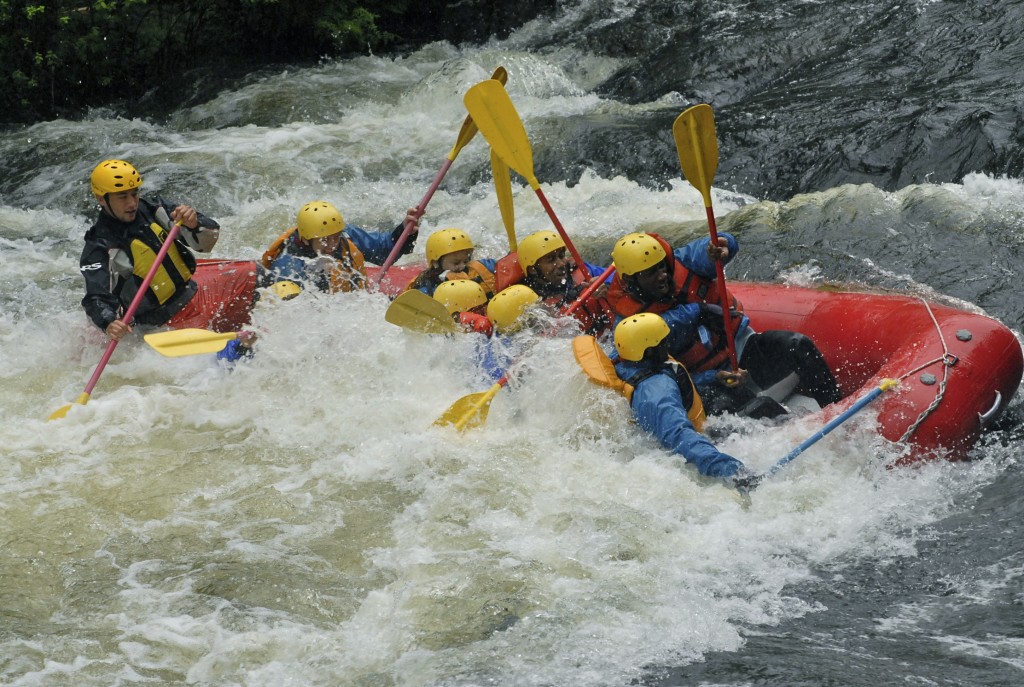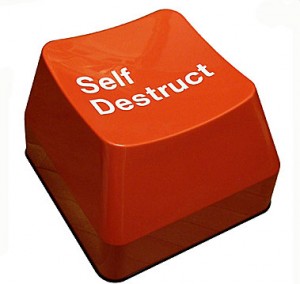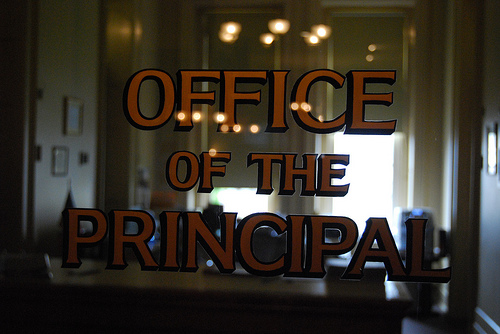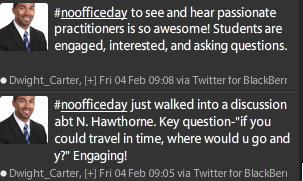Prior to the end of the school year, I sent my staff a Google Doc and asked them to share some highlights of the year. We have much to be proud of as we perservered through some tough times to create some great learning opportunities for our students. Following is a list of great things that represent what I call the 7 A’s of Gahanna Lincoln High School:

Academics:
* 9% of our students averaged a 4.0 grade point average.
* 97% of our AP Psychology students passed the AP exam! The national average is 66%.
* 88% of our AP US History students passed the AP exam! The national average is 50%. Wow!
* 80.8% of our AP Calculas AB students passed the AP exam! The class average was 3.529.
* 87.5% of our AP Calculas BC students passed the AP exam! The class average was 3.938.
* 100% of our AP Literature and Composition students passed the AP exam! The class average was 4.056.
* Nearly 1000 students earned a Renaissance Card this year for Academics, Attendance, and Attitude.
* 55% or 294 of our seniors took 4 years of math.
* One of our Intervention Specialists that retired stated that she, “completed thirty-five years of working with special needs kids and learning lots along the way.”
* The 9th grade Global Studies teachers successfully introduced the Global Studies Symposium this year, where our freshman comprehensively applied knowledge and skills to understand the world today and demonstrated it with a project they designed and created. Pretty amazing!
* From one our English teachers: “This year more students than ever before reported ‘loving’ Romeo and Juliet and the English 9 research paper. I attribute this to the English 9 PLC collaborating and creating new ways to introduce the material in order to engage students.”
* From one of our Intervention Specialists: “The majority of students with LD, who are in Collaborative settings for U.S. History, passed the Social Studies section of the March OGT.”
* From our AP Environmental and Biology teacher: “Some of my students had a video they made for a PBL assignment on the creek attract the attention of Friends of Darby Creek, who want to use the video on their web site.”
* From one of our PE teachers: “Lifetime Fitness students made a video on YouTube: Did You Know Phys Ed? The news saw it and came out to do a story on us. Chipotle saw us on the news and had a fundraiser for us to get our Garden going. They brought burritos for all my students and spoke to us about how they use farm fresh ingredients. They also taught us how to make fresh guacamole and all my students received free gift cards!”
* ELL students made the AMAO’s for the year (another form of assessment criteria) and performed better on the OTELA than the state requirements.
* One of our Math teachers restructured her Integrated 1 classes to a class where students’ learn at their own pace. She and the students experienced many successes, and some challenges.
* Three debate seniors received Academic All-American from the National Forensic League.
* Our GATE teacher successfully started a new course team-teaching Science and English with one of our Science teachers. Two of the English units are paperless.
* The Gahanna Community School, our conversion school, presented its first Justin Vanguilder Memorial Scholarship of $1000.00. Justin was a GCS student that passed away from cancer last school year.
* Our 9th grade Integrated Science teachers formed a great integrated science PLC this year. Also, two students told one of the teachers at the end of the year that they used to hate science… but now it is their favorite class!
* Two teachers that worked in a collaborative Math classroom witnessed great success with an action research project regarding the math OGT. 84% passage in integrated math II, a largely collaborative setting, and 100% of sophomore IEP students passed.
* The Model United Nations Club had two freshmen girls win an Excellent award at the Northcoast Conference this past spring.
* From one of our English teachers: “the PLC in English really made a difference in academics and attitude with my freshmen. Final exam grades were great!”
* Our Senior Project students created amazing presentations on their wide ranging topics.
* From one of our US Government teachers: “Zero F’s!I did not accept failure and did not lower the academic level.”
* Our Science Academy students experienced a fourth successful Science Academy Symposium held in February with over $1000 in awards. Junior N.S. won 4th place in Ohio Junior Science and Humanities Symposium and qualified and attended National Symposium in April.
* Six Science Academy students won awards at Columbus Technical Council Awards Banquet in May. Houston Fortney was runner up to CTC Science Student of the Year. This is the third year in a row Gahanna has had either the winner or the runner up to that prestigious award.
* The Underwater Robotics team won the Great Lakes Regional ROV competition in April and qualified for the International MATE ROV Competition held in June in Houston, Texas at NASA’s Neutral Buoyancy Lab.
Attendance:
* 22% of our students earned perfect attendance.
* 88% of our staff members were nominated for a PRIDE Award, which is an award the recognizes individuals for exhibiting “personal responsibility in developing excellence.”
* 37% or 882 students were nominated for a PRIDE Award!
* WGLH-TV, our TV program, was first in the State and six students won top state awards for stories they produced.
* Gahanna art students had an exhibition at the Carnegie Gallery in the Columbus Metropolitan Library as well as an exhibition at the Gahanna Library.
* Senior D.C. won Broadcast Idol for the best high school Broadcast student in Central Ohio!
* Senior M. B. was runner-up at the Arnold Classic Film festival competing with high school students from across the nation for the documentary that he produced on Bill Withrow, a lifelong supporter and icon in Gahanna.
* Seniors M.B. and D.C. won a regional Emmy for their video journalism work.
* Senior B.G. and Junior R.J. were selected by audition into the OMEA all-state band!
* The bands lived up to this year’s motto, “the tradition continues” and presented outstanding performances on the field and in the auditorium, including earning unanimous superior ratings at state contest for all three bands.
* The Art Club along with student’s from Ms. Fairchild’s classes painted a mural for the Cafeteria. They courtyard received additional sculptures as well as the renovation of existing work and was mulched by Mr. Assman and Ms.Scott’s students.
* The Threatre department produced To Kill A Mockingbird in the fall and did a student matinee for the entire sophomore class. They also produced the Broadway classic, Thoroughly Modern Millie.
* Approximately 26% of GLHS students took part either back stage or on stage as part of the school theatrical productions this past school year.
* Speech and debate had a record 25 State qualifiers this season and four national qualifiers for speech and debate–have qualified 39 students over last 13 years!
* The full orchestra received a Superior rating at OMEA Adjudicated Events.
* Approximately 27% of GLHS students are involved in vocal or instrumental music!
* Performance Studio took part in Lincoln Elementary’s enrichment day and will be running a drama camp this coming Friday for a local girl scout troop. This group also performed for the senior citizens this past winter.
*Theatre students acted as mentors for the newly formed Middle School West Drama Club!
*The GLHS Orchestra visited High Point and Jefferson to perform, interact and have HS musicians teach grades 3-5 how to play the instruments.
* Our International Thespian Society sponsored the first ever high school theatre day for GLHS students.
* The Theatre for Young Audiences tour performed for over 3000 elementary students this past spring.
Activities:
* The Renaissance Action Team created an Ohio Coalition of Renaissance Schools and hosted a regional conference at GLHS with over 200 attendees.
* The “S” Club’s focus this year was Teen Dating Violence — they hosted Johanna Orozco (teen dating violence survivor from the Cleveland area) for a girls-only speaker session, and had a booth at the Health Fair to spread awareness. “S” Club will continue with the Teen Dating Violence awareness and prevention focus again next year.
*Student Council held fall homecoming here at the high school in October, and Prom at the OSU student Union. Both were the highly successful!
*The message of Peace week this year was Pause Before You Post, and was successfully communicated despite not being able to hold lunch on the lawn.
Athletics:
* Jake Blankenship was the Division 1 state champion in the pole vault. His 17’0” vault set a new state meet record and tied the all-time state of Ohio record. This was also a Jesse Owens stadium record, which includes collegiate athletes as well.
* Varsity Softball team finished as State Runner-up. This run included their 3rd District Championship in four years. He also placed first nationally and third in the World competition!
* Varsity Baseball Team won their 3rd District Championship in four years.
* Varsity Soccer Team was District Champions and Regional Runner-up.
* Boys Basketball was OCC Champions and District Champions
Acts of Service:
* The Renaissance Action Team collected and shipped 30 boxes of supplies to troops in Afghanistan and Pakistan.
* WGLH-TV, partnering with the Gahanna Rotary, raised $14,000.00 to send 80 WWII veterans to Washington DC on and Honor Flight this past April.
* During the Health fair WGLH-TV collected nearly 500 pledges from students who said “They will not Text and Drive”.
* WGLH-TV produced a 60 minute documentary on Un-sung Heroes here in Gahanna.
* “S” Club raised funds to provide a GRIN family (single mom with three children) with Thanksgiving dinner and over $300 in Christmas presents. The students had a terrific time delivering the gifts to the family and watching the children open them!
* The Multi-National Culture Club helped teach English to parents and volunteered at the International Festival at Vet’s Memorial for the second year in a row.
* The marching band honored our veterans and fallen soldiers in two Independence Day parades and three Memorial Day services, plus participating in the tribute to Gahanna Bill in downtown Columbus.
* Student Council collected over 700 pounds of food for the food bank with the Winter Dance homeroom competition.
* The January 2011 performance of Faure’s Requiem by the Chorale and Chamber Orchestra helped raise $2,696 (in ticket sales) for Gahanna Residents In Need (GRIN), more than doubling GRIN’s yearly budget to help our community!
I am thankful to work with such a dedicated group of educators that work tirelessly to do what is best for students. I look forward to next school year as we continue to grow together as a team!
Be Great,
Dwight










